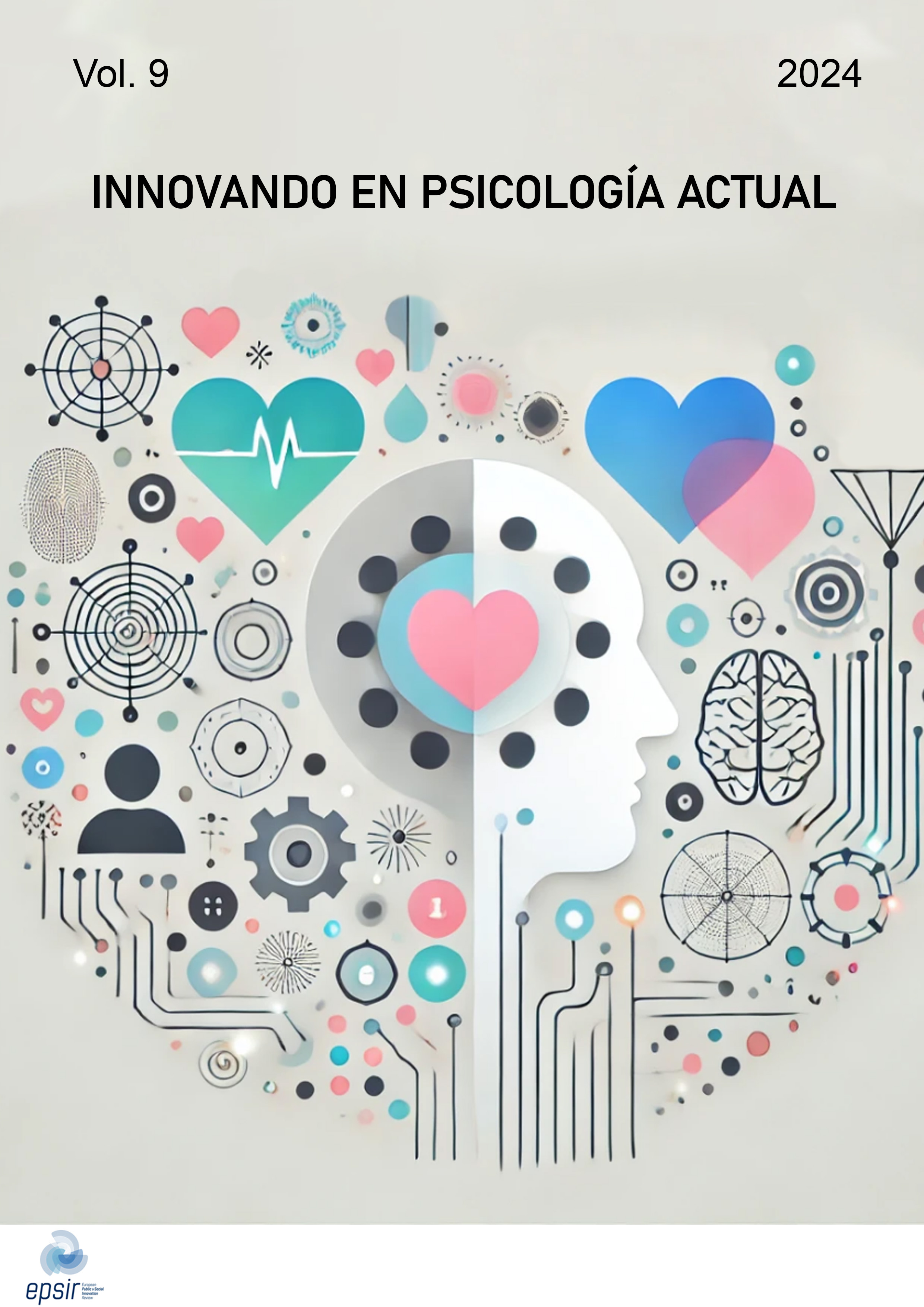Innovating in the applications of Current Psychology
DOI:
https://doi.org/10.31637/epsir-2024-1740Keywords:
Educational psychology, Emotional intelligence, Mindfulness, Addiction to social networks, NeurodidacticsAbstract
This monograph explores innovations in psychology, focusing on its application to contemporary issues such as emotional, social, and educational challenges. It highlights innovative approaches in educational psychology, such as neurodidactics and emotional intelligence, which are transforming learning and emotional development in students. In clinical psychology, research on disorders like anxiety and ADHD examines the integration of therapeutic tools such as mindfulness and music, specifically the violin, to improve emotional regulation and behavior. The monograph also addresses the gender perspective in psychology, particularly regarding emotional intelligence and sexism. Furthermore, it explores the effects of social media addiction, which impacts the self-esteem and mental health of young people. The monograph invites reflection on how innovations in psychology can enhance emotional well-being and the holistic development of individuals.
Downloads
References
Abuín-Penas, J. y Abuín-Penas, R. (2022). Redes sociales y el interés por la información oficial en tiempos de pandemia: análisis de la comunicación de los ministerios de salud europeos en Facebook durante la COVID-19. Revista de Comunicación y Salud, 12. https://doi.org/10.35669/rcys.2022.12.e303 DOI: https://doi.org/10.35669/rcys.2022.12.e303
Acuña-Hormazábal, A., Ganga-Contreras, F., Castillo, J. y Luengo-Martínez, C. (2022). Investigaciones sobre Engagement y Burnout: una aproximación teórica en tiempos de COVID-19. Telos: revista de Estudios Interdisciplinarios en Ciencias Sociales, 24(2), Venezuela. Pp.370-383. www.doi.org/10.36390/telos242.10 DOI: https://doi.org/10.36390/telos242.10
Almeida, F. (2021). Social movements in a time of pandemic: The case of Tech4Covid19 in Portugal. European Public & Social Innovation Review, 6(2), 51-63. https://pub.sinnergiak.org/esir/article/view/151 DOI: https://doi.org/10.31637/epsir.21-2.4
López, C. y García, F. (2021). Adicción a las redes sociales y autoestima en estudiantes universitarios. Revista Latinoamericana de Psicología, 43(2), 110-125. https://doi.org/10.7592/rps.2021.43.2.110
Martínez Pérez, A. (2010). El síndrome de Burnout. Evolución conceptual y estado actual de la cuestión. Vivat Academia, (112), 42–80. https://doi.org/10.15178/va.2010.112.42-80 DOI: https://doi.org/10.15178/va.2010.112.42-80
Martínez, M. y Rodríguez, D. (2023). Impacto de la neurodidáctica en la motivación estudiantil en la educación superior. Revista de Psicología Educacional, 35(1), 112-124. https://doi.org/10.1234/rpe.2023.35.1.112
Pérez, E. y García, L. (2022). Mindfulness y bienestar en estudiantes de primaria: un estudio longitudinal. Revista de Psicología Aplicada, 18(3), 34-47. https://doi.org/10.5678/rpa.2022.18.3.34

Downloads
Published
How to Cite
Issue
Section
License
Copyright (c) 2024 Blanca Tejero Claver , Carmen Gaona Pisonero , Carmen Paradinas Márquez

This work is licensed under a Creative Commons Attribution-NonCommercial-NoDerivatives 4.0 International License.
Authors who publish with this journal agree to the following terms:- Authors retain copyright and grant the journal right of first publication with the work simultaneously licensed under Creative Commons Non Commercial, No Derivatives Attribution 4.0. International (CC BY-NC-ND 4.0.), that allows others to share the work with an acknowledgement of the work's authorship and initial publication in this journal.
- Authors are able to enter into separate, additional contractual arrangements for the non-exclusive distribution of the journal's published version of the work (e.g., post it to an institutional repository or publish it in a book), with an acknowledgement of its initial publication in this journal.
- Authors are permitted and encouraged to post their work online (e.g., in institutional repositories or on their website) prior to and during the submission process, as it can lead to productive exchanges, as well as earlier and greater citation of published work (See The Effect of Open Access).


